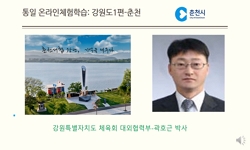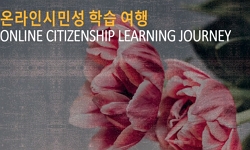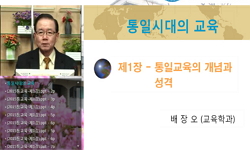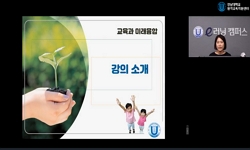본 연구는 대학 교양교육과정에서 연극만들기를 활용한 통일교육 프로그램을제시하고 이것이 대학생들의 통일에 대한 태도 변화에 미치는 영향을 분석하는데 그 목적이있다. 본 연구는 연...
http://chineseinput.net/에서 pinyin(병음)방식으로 중국어를 변환할 수 있습니다.
변환된 중국어를 복사하여 사용하시면 됩니다.
- 中文 을 입력하시려면 zhongwen을 입력하시고 space를누르시면됩니다.
- 北京 을 입력하시려면 beijing을 입력하시고 space를 누르시면 됩니다.
연극만들기를 활용한 통일 교양수업이 대학생의 통일에 대한 태도 변화에 미치는 영향 = The Effect of a Unification Liberal Arts Class by Playmaking on Changes in College Students' Attitudes Toward Korea Unification
한글로보기https://www.riss.kr/link?id=T17167353
- 저자
-
발행사항
서울 : 서울교육대학교 교육전문대학원, 2025
-
학위논문사항
학위논문(석사) -- 서울교육대학교 교육전문대학원 , 교육연극 , 2025. 2
-
발행연도
2025
-
작성언어
한국어
-
주제어
통일교육 ; 대학통일교육 ; 대학통일 교양수업 ; 통일에 대한 태도 변화 ; 통일 연극만들기
-
발행국(도시)
서울
-
형태사항
105 ; 26 cm
-
일반주기명
지도교수: 장연주
-
UCI식별코드
I804:11031-200000867435
- 소장기관
-
0
상세조회 -
0
다운로드
부가정보
국문 초록 (Abstract)
본 연구는 연극만들기를 활용한 수업이 대학생의 통일에 대한 태도 변화에 영향이 있는지를 알아보기 위해 혼합연구 방법을 선택하였다. S대학교 19명의 학생을 대상으로 14주간 120분의 수업을 진행하여 양적·질적 자료를 수집하고 통합하여 분석하였다. 양적 분석을 위해 통일에 대한 태도 검사를 사전-사후 실시하였고, 질적 분석을 위해 수업 포트폴리오, 수업 소감문, 공연 감상문과 수업만족도 조사의 주관식 응답을 수집하여 반복적 비교분석법을 사용하였다.
연극만들기를 활용한 통일교육의 효과를 분석한 결과 대학생들의 통일에 대한태도에 긍정적인 변화가 있었음이 확인되었다. 통일에 대한 태도 검사에서 사전평균 3.48점에서 사후 평균 3.99점으로 상승했으며(P<0.01), 인지차원은 3.61점에서 4.04점으로 정서차원은 3.23점에서 3.92점으로 상승하였다. 질적 분석 결과 참여자들은 연극만들기를 통해서 통일에 대한 무관심에서 관심으로, 부정에서 긍정으로 인식이 변화되었고, 남북한의 문화적 공통점과 차이점을 발견하게되었다. 또한 통일 이후 현실적 과제를 구체적으로 인식하고 이를 새로운 기회로 바라보게 되었으며, 연극형식의 요소를 통해 통일 문제를 직접 체험하며 이해할 수 있었다.
이상의 연구 결과를 종합하여 본 연구가 제시하는 시사점을 다음과 같다.
첫째, 연극만들기 활동은 통일에 대한 태도 변화를 이끌어낼 수 있는 교육방법으로, 특히 정서적 공감을 이끌어 내는데 효과적이었다.
둘째, 연극형식의 요소들이 통일문제를 이해하게 하는 교육적 도구로서 효과가있었으며, 단계적인 수업 구성과 팀 활동이 학습효과를 높이는데 기여했다.
셋째, 연극만들기 활동은 통일 문제를 추상적 문제가 아닌 구체적인 문제로 인식하도록 도움을 주었으며, 참여자들이 직접 역할을 표현하고 통일 과정의 갈등상황을 경험하면서 통일문제가 자연스러운 토론 주제로 발전하였다. 이를 통해통일의 긍정적인 측면과 부정적인 측면을 동시에 고려하는 균형잡힌 관점이 형성되었으며, 통일을 사회통합 과제로 인식하게 되었다.
이러한 연구 결과는 대학 교양교육과정에서 연극만들기를 활용한 통일교육이대학생들의 통일에 대한 태도에 긍정적인 영향을 미칠 수 있음을 보여준다.이는통일 문제를 구체적으로 체험하고 이해하는데 기여할 수 있다는 점에서 의의가있다. 따라서 향후 대학통일교육에서 새로운 방향을 제시하는데 중요한 시사점을 제공한다.
본 연구는 대학 교양교육과정에서 연극만들기를 활용한 통일교육 프로그램을제시하고 이것이 대학생들의 통일에 대한 태도 변화에 미치는 영향을 분석하는데 그 목적이있다.
본 연구는 연극만들기를 활용한 수업이 대학생의 통일에 대한 태도 변화에 영향이 있는지를 알아보기 위해 혼합연구 방법을 선택하였다. S대학교 19명의 학생을 대상으로 14주간 120분의 수업을 진행하여 양적·질적 자료를 수집하고 통합하여 분석하였다. 양적 분석을 위해 통일에 대한 태도 검사를 사전-사후 실시하였고, 질적 분석을 위해 수업 포트폴리오, 수업 소감문, 공연 감상문과 수업만족도 조사의 주관식 응답을 수집하여 반복적 비교분석법을 사용하였다.
연극만들기를 활용한 통일교육의 효과를 분석한 결과 대학생들의 통일에 대한태도에 긍정적인 변화가 있었음이 확인되었다. 통일에 대한 태도 검사에서 사전평균 3.48점에서 사후 평균 3.99점으로 상승했으며(P<0.01), 인지차원은 3.61점에서 4.04점으로 정서차원은 3.23점에서 3.92점으로 상승하였다. 질적 분석 결과 참여자들은 연극만들기를 통해서 통일에 대한 무관심에서 관심으로, 부정에서 긍정으로 인식이 변화되었고, 남북한의 문화적 공통점과 차이점을 발견하게되었다. 또한 통일 이후 현실적 과제를 구체적으로 인식하고 이를 새로운 기회로 바라보게 되었으며, 연극형식의 요소를 통해 통일 문제를 직접 체험하며 이해할 수 있었다.
이상의 연구 결과를 종합하여 본 연구가 제시하는 시사점을 다음과 같다.
첫째, 연극만들기 활동은 통일에 대한 태도 변화를 이끌어낼 수 있는 교육방법으로, 특히 정서적 공감을 이끌어 내는데 효과적이었다.
둘째, 연극형식의 요소들이 통일문제를 이해하게 하는 교육적 도구로서 효과가있었으며, 단계적인 수업 구성과 팀 활동이 학습효과를 높이는데 기여했다.
셋째, 연극만들기 활동은 통일 문제를 추상적 문제가 아닌 구체적인 문제로 인식하도록 도움을 주었으며, 참여자들이 직접 역할을 표현하고 통일 과정의 갈등상황을 경험하면서 통일문제가 자연스러운 토론 주제로 발전하였다. 이를 통해통일의 긍정적인 측면과 부정적인 측면을 동시에 고려하는 균형잡힌 관점이 형성되었으며, 통일을 사회통합 과제로 인식하게 되었다.
이러한 연구 결과는 대학 교양교육과정에서 연극만들기를 활용한 통일교육이대학생들의 통일에 대한 태도에 긍정적인 영향을 미칠 수 있음을 보여준다.이는통일 문제를 구체적으로 체험하고 이해하는데 기여할 수 있다는 점에서 의의가있다. 따라서 향후 대학통일교육에서 새로운 방향을 제시하는데 중요한 시사점을 제공한다.
다국어 초록 (Multilingual Abstract)
attitudes toward unification, given the increasing indifference and negative perceptions among college students regarding Korean unification.
This study employed a mixed methods research approach to examine how playmaking-based instruction affects college students' attitudes
toward unification. The study was conducted with 19 students at SUniversity through 14 weeks of 120-minute classes, collecting and
integrating both quantitative and qualitative data. For quantitative analysis, pre-post tests on attitudes toward unification were conducted,
while qualitative analysis utilized the constant comparative method to analyze class portfolios, reflection papers, performance reviews, and
open-ended responses from course satisfaction surveys.
Analysis of the effects showed positive changes in students' attitudes toward unification. The mean scores on unification attitude tests
increased from 3.48 to 3.99 (p<0.01), with cognitive dimension scores rising from 3.61 to 4.04 and emotional dimension scores from 3.23 to
3.92. Qualitative analysis revealed that through playmaking activities, participants' perceptions shifted from indifference to interest and fromnegative to positive regarding unification. They discovered cultural commonalities and differences between South and North Korea,
recognized practical post-unification challenges as new opportunities, and gained experiential understanding of unification issues through
theatrical elements.
The findings suggest the following implications:
First, playmaking activities proved effective as an educational method for changing attitudes toward unification, particularly in fostering
emotional empathy.
Second, theatrical elements served as effective educational tools for understanding unification issues, with structured class progression and
team activities enhancing learning outcomes.
Third, playmaking activities helped students perceive unification as a concrete rather than abstract issue, naturally leading to discussions as
students enacted roles and experienced unification-related conflict situations. This developed a balanced perspective considering both
positive and negative aspects of unification and recognition of unification as a social integration task.
These findings demonstrate that unification education using playmaking in college liberal arts curriculum can positively influence
students' attitudes toward unification. This holds significance in contributing to experiential understanding of unification issues and
suggests important implications for new directions in university unification education
This study aims to analyze the effects of unification education using playmaking in college liberal arts curriculum on changing students' attitudes toward unification, given the increasing indifference and negative perceptions among college students r...
This study aims to analyze the effects of unification education using playmaking in college liberal arts curriculum on changing students'
attitudes toward unification, given the increasing indifference and negative perceptions among college students regarding Korean unification.
This study employed a mixed methods research approach to examine how playmaking-based instruction affects college students' attitudes
toward unification. The study was conducted with 19 students at SUniversity through 14 weeks of 120-minute classes, collecting and
integrating both quantitative and qualitative data. For quantitative analysis, pre-post tests on attitudes toward unification were conducted,
while qualitative analysis utilized the constant comparative method to analyze class portfolios, reflection papers, performance reviews, and
open-ended responses from course satisfaction surveys.
Analysis of the effects showed positive changes in students' attitudes toward unification. The mean scores on unification attitude tests
increased from 3.48 to 3.99 (p<0.01), with cognitive dimension scores rising from 3.61 to 4.04 and emotional dimension scores from 3.23 to
3.92. Qualitative analysis revealed that through playmaking activities, participants' perceptions shifted from indifference to interest and fromnegative to positive regarding unification. They discovered cultural commonalities and differences between South and North Korea,
recognized practical post-unification challenges as new opportunities, and gained experiential understanding of unification issues through
theatrical elements.
The findings suggest the following implications:
First, playmaking activities proved effective as an educational method for changing attitudes toward unification, particularly in fostering
emotional empathy.
Second, theatrical elements served as effective educational tools for understanding unification issues, with structured class progression and
team activities enhancing learning outcomes.
Third, playmaking activities helped students perceive unification as a concrete rather than abstract issue, naturally leading to discussions as
students enacted roles and experienced unification-related conflict situations. This developed a balanced perspective considering both
positive and negative aspects of unification and recognition of unification as a social integration task.
These findings demonstrate that unification education using playmaking in college liberal arts curriculum can positively influence
students' attitudes toward unification. This holds significance in contributing to experiential understanding of unification issues and
suggests important implications for new directions in university unification education
목차 (Table of Contents)
- Ⅰ. 서 론 1
- 1. 연구의 목적 및 필요성 1
- 2. 선행연구 4
- 가. 대학통일교육 연구 4
- 나. 교육연극을 활용한 통일교육 연구 5
- Ⅰ. 서 론 1
- 1. 연구의 목적 및 필요성 1
- 2. 선행연구 4
- 가. 대학통일교육 연구 4
- 나. 교육연극을 활용한 통일교육 연구 5
- 다. 선행연구 시사점 6
- 3. 연구 문제 6
- 4. 용어 정의 7
- 가. 통일교육 7
- 나. 통일에 대한 태도 7
- 다. 연극만들기 8
- 5. 연구의 제한점 8
- Ⅱ. 이론적 배경 9
- 1. 대학에서의 통일교육 9
- 가. 통일교육 9
- 나. 대학에서 통일교육의 필요성과 연구 현황 12
- 다. 대학통일교육의 문제점과 지향점 13
- 2. 연극만들기 16
- 가. 연극만들기의 개념과 특징 16
- 나. 연극만들기의 과정 17
- 다. 연극만들기에서 연극형식의 요소 19
- 3. 연극만들기를 활용한 통일교육의 의의 22
- Ⅲ. 연구방법 25
- 1. 혼합 연구 방법 25
- 2. 연구 맥락 26
- 3. 연구 참여자와 연구자 27
- 4. 연구 절차 28
- 5. 연구 설계 29
- 6. 양적 자료 수집과 분석 29
- 가. 자료 수집 29
- 나 자료 분석 32
- 7. 질적 자료 수집과 분석 32
- 가. 자료 수집 32
- 나 자료 분석 33
- 8. 연구의 타당도 및 연구 윤리 확보 방안 36
- Ⅳ. 연극만들기 프로그램 개발 및 실행 37
- 1. 연극만들기 프로그램 개발 37
- 가. 작품 선정 기준 37
- 나. 연극만들기 프로그램 구성 41
- 2. 연극만들기 프로그램 실행 44
- Ⅴ. 연극만들기 프로그램 결과 분석 71
- 1. 양적 연구 결과 71
- 가. 통일에 대한 태도 변화 71
- 나. 수업 만족도 72
- 2. 질적 연구 결과 73
- 가. 통일에 대한 태도 변화 73
- 나. 남북한 문화의 같음과 다름을 발견 76
- 다. 통일 이후 현실적 과제와 기회 인식 82
- 라. 연극형식 요소를 통한 통일 문제 체험과 이해 84
- Ⅵ. 결론 91
- 1. 요약 91
- 2. 결론 및 제언 93
- 참고문헌 96
- ABSTRACT 100
- 부록 103











